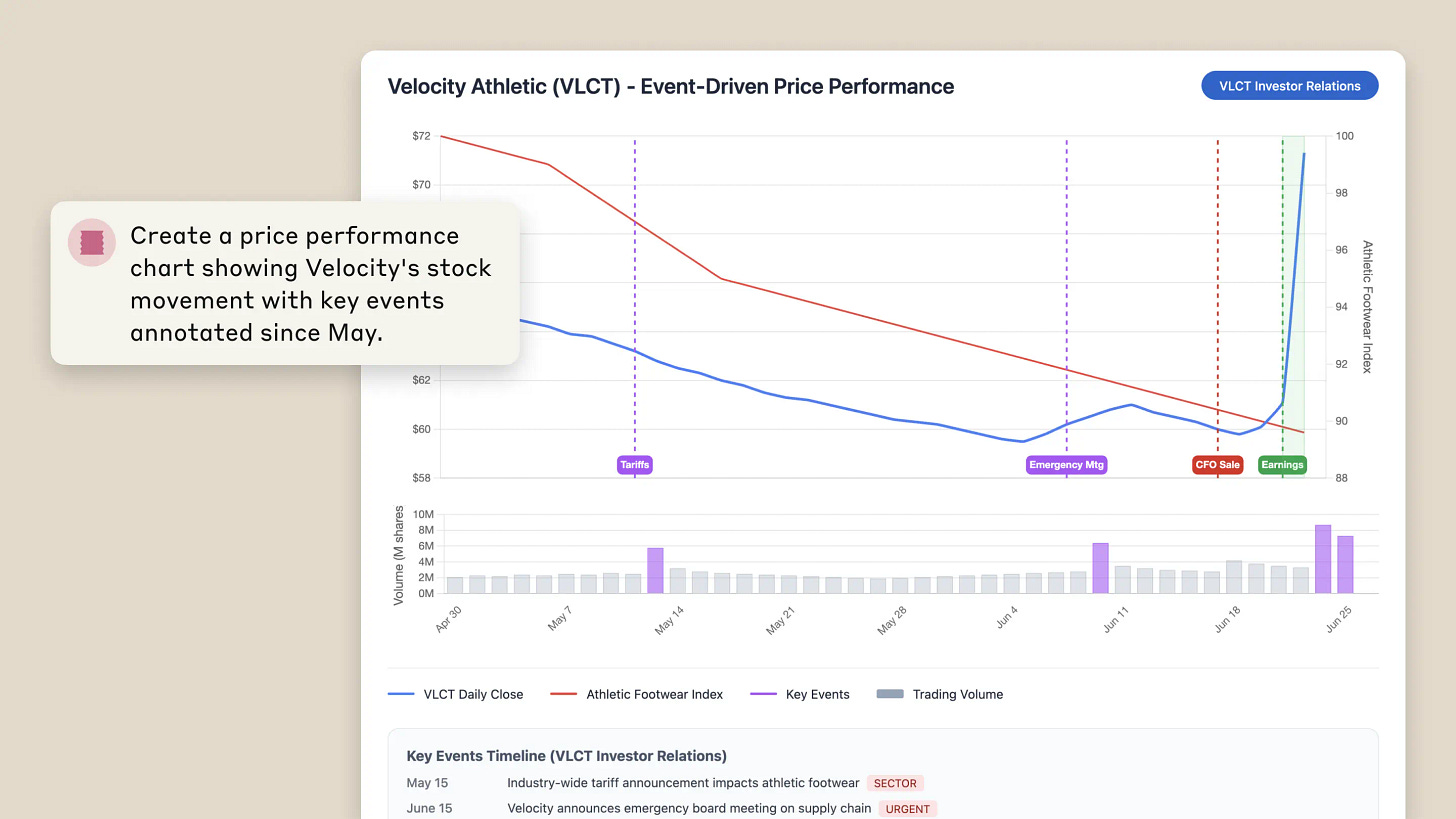Claude for Finance Is a Trojan Horse for the Model-as-Aggregator Era
More than an API, or a smarter chatbot, it's an Operating System for Investing.
Anthropic launched Claude for Finance yesterday, and it isn’t just a chatbot for analysts. It’s an AI-native operating system designed to serve investors by combining Claude with their data, integrated from providers like Morningstar to S&P Global to Snowflake.
This is a small but significant stepchange from how other AI companies have served the finance sector, from the market newsfeeds of Perplexity to the chatbot queries of OpenAI.
This is what the shift from LLM-as-a-service to model-as-platform looks like in practice.
Alongside the Claude API, Anthropic bundled together a starter interface and a ready-to-integrate ecosystem of data providers, making the platform full-stack from day one.
Use-cases include:
investment and analysis workflows including due diligence and market research
competitive benchmarking
portfolio deep dives
financial modeling with full audit trails
generating institutional-quality investment memos and pitch decks
monitoring portfolio performance
identify opportunities faster than traditional methods
What differentiates Anthropic’s unified approach: its user/developer experience.
They are steps ahead in the model-as-aggregator platform shift, building out the ecosystem with initiatives like MCP.
What increases a platform’s value to a user is context - like chat memory, or in the enterprise use-case, their data.
Anthropic’s approach is more like building the OS for modern finance, vs just an API or a more powerful chatbot.
My takeaways:
A new moat for companies is to be embedded as picks-and-shovels for the foundational model ecosystem
Design as “API". Still missing. Much needed.
Interfaces will remain important for humans to take in information, but it will be increasingly programmatic. With how powerful reasoning models are getting (think agentic intelligence where coding models can start executing after a query), custom views, dashboards, and interfaces can be easily spun up.
The Download—
p.s. apologies for sending the news section out early yesterday!
Amazon launches Kiro, its own Claude-powered challenger to Windsurf and Codex (Amazon)
Amazon has launched Kiro, a Claude-powered AI coding IDE that uses agent-based workflows to turn specs into fully documented, tested code. It supports multimodal input (text, diagrams, context files) and includes automated hooks for updates.
Meta’s Zuckerberg to build new AI 'Superclusters' nearly the size of Manhattan (TechCrunch)
Thanks for reading The Strange Review! Subscribe for free to receive new posts.
In a Facebook post, Zuckerberg said Meta will spend “hundreds of billions of dollars” on setting up the computing power necessary to build “superintelligence,” a type of AI that has more capabilities than a human brain. Meta has said it expects to spend $64 billion to $72 billion this year on capital expenditures as it turbocharges its AI capacity.
Key projects include the Prometheus supercluster in Ohio (2026) and Hyperion in Louisiana. The data centers will soak up enough energy to power millions of homes, which could pull significant amounts of electricity and water from neighboring communities.
A Berkeley study finds that as chatbots get smarter, humans’ unique language abilities are becoming less special (Berkeley)
A new UC Berkeley research reveals for the first time that AI chatbots can now analyze sentences like a trained linguist. The study, which will be published in the journal IEEE Transactions on Artificial Intelligence, provides a glimpse into how AI models are improving and also challenges the idea that humans are unique in our ability to think about language.
MoonValley raises $84M for AI video model (InsideAI)
The funding round led by General Catalyst brings Moonvalley’s total funding to $154 million. The funds will help scale Marey, Moonvalley’s flagship AI video model, recently made publicly accessible via subscription.
Anthropic, Google, OpenAI and xAI granted up to $200 million for AI work from Defense Department (CNBC)
The DoD’s Chief Digital and Artificial Intelligence Office said the awards will help the agency accelerate its adoption of “advanced AI capabilities to address critical national security challenges.”







